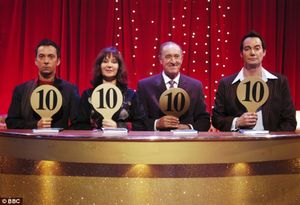The most common question that anyone casting opera hears from prospective applicants is “what are you looking for?” There is a sense in the industry among singers that the answer to this question is like asking for the secret recipe at a restaurant. This is certainly not the case! I, for one, am more than happy to tell you what I’m looking for and would be thrilled if the people who came through my doors were, therefore, better equipped to deliver it to me.
Here are my answers, in some streamlined categories. While these are certainly only my personal desires, and the weight of each of these items varies from director to director, it is safe to say that everyone, by and large, is looking for these things.
COVER LETTERS AND PRINTED MATERIALS
This is your first impression with the company, so don’t blow it. Not every company requires a cover letter, and it doesn’t mean the same thing to everyone, so singers often don’t know what to do. Here’s what I have to say about cover letters:
- If the company asks for specific things in the cover letter, make sure you cover them all. If I ask you to answer one specific question and you don’t bother, it doesn’t bode well.
- On the other side, try not to give them tons of extraneous information that they don’t need. I don’t want to read three whole pages (yes, this has happened) of your life story. If they just ask for “a cover letter,” there is really no reason for it to be more than a paragraph or so in length. Tell them who you are, why you’re writing, what you’ve attached, and why you want to sing for them. That’s it.
- SPELL- & GRAMMAR-CHECK. There is nothing worse as a first impression than a cover letter that wouldn’t get you a passing grade in 10th grade English. Please proofread, and if you don’t trust yourself, have someone you do trust do the proofreading.
As for headshots and resumes, that’s a whole ‘nother ball game, but suffice it to say, résumés should be clean-looking and easy to read, and your headshot should be a professionally-taken photo, not a selfie (yes, this has also happened).
APPEARANCE AND PRESENTATION
There have been countless articles written about how to dress for auditions, and I hate pretty much all of them. I’m going to be honest with you—the ONLY reason I will notice or remember what you’re wearing is if it is the cutest thing I’ve ever seen, or you literally look like a hobo. Everything in between, as long as YOU are comfortable, clean, and not naked, is pretty much cool with me. I will think it’s weird if you wear a gown to an audition for my small contemporary opera company, but if you give a great audition, who am I to judge?
Presentation, however, is a totally different issue. I do want to get to know your personality in your audition, but ultimately, this is a job interview. If you wouldn’t do it in a corporate office, you probably shouldn’t do it in the audition room either. Some examples include:
- Be respectful. Even if you think to yourself “who do they think they are” on the inside, treat everyone you sing for as though they were someone important. Because in this room, they are.
- Don’t overshare or give excuses for yourself before you sing. It makes everyone in the room uncomfortable, and makes it impossible for us to objectively judge your performance because we feel bad for you before you even begin.
- Enjoy yourself! I would never ask someone in their everyday life to smile just to please me. But if you walk into an audition and you look like you don’t want to be there/your dog just died/you’re contemplating my murder, it’s a little off-putting. Remember that you’re here to do something you love, and share that love with us.
THE PERFORMING ITSELF
This is always a touchy subject, and I want to reiterate that the opinions here are my own. This is a very subjective category, and while I know from informal discussions with other directors that at least some share my opinions, everyone is entitled to their own.
When it comes to performance technique, my ideal performer is someone who integrates their singing into full-body communication. This is not the same as what many singers call “acting.” It is not enough to move your body at the right time and make the right facial expressions while singing the notes and rhythms correctly. What I am looking for is someone who gets inside the music in a way that shows me exactly what the character is saying, by synthesizing the music and libretto into an honest and immediate performance. You have to become the character musically as well as theatrically in order to do this, and this is where being a “good musician” gives someone a great advantage.
However, it is possible—perhaps even easy— to give a musically perfect but utterly dull performance. There is nothing that disappoints me more than hearing beautiful singing that doesn’t communicate at all. I have a particular personal bias against this, and I have turned away singers who are vocally more traditionally “perfect” because their performance made me feel absolutely nothing. Conversely, I have on many occasions been moved to tears by singers who were not in the top 1% technically, but whose performance was something honest, heartfelt, and well-executed.
There is, of course, a law of diminishing returns. This is opera after all, and singers who are phenomenal actors but vocally incapable of getting through one aria without sounding like they’re in pain are not going to make the cut.
IN CONCLUSION
What I want, in summary, is to see someone who takes both themselves and their work seriously, and who uses music as a vehicle to express something outside of themselves. Bring me what you’ve got! I look forward to seeing it.
Claire DiVizio is the Executive & Artistic Director of Thompson Street Opera Company, and is a private voice teacher in the Chicago area.

